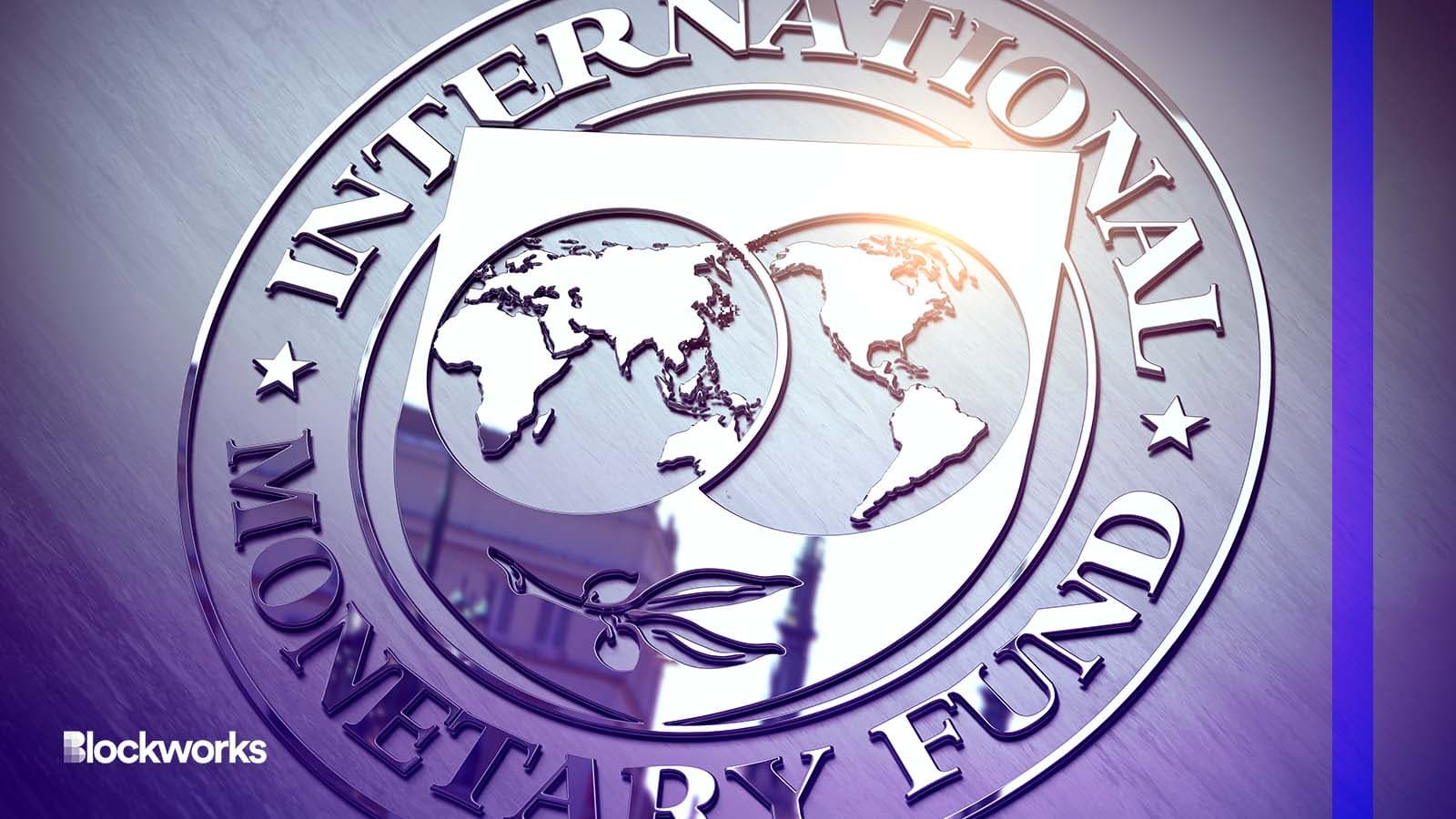Blockchain Can Be Public Good, but Crypto Still ‘Disappointment’: IMF
Crypto technology (blockchain) can help to speed payments and settlements and enhance security and compliance, the IMF argues

Maxx-Studio/Shutterstock.com modified by Blockworks
The International Monetary Fund (IMF) has recently expressed understanding of the benefits of crypto — albeit slight — but still remains skeptical about public blockchains.
Financial counselor Tobias Adrian and monetary and capital markets department division chief Tommaso Mancini-Griffoli co-authored a recent post, which begins by claiming that “crypto assets have been more of a disappointment than a revolution for many users.”
Still, they cited three areas in which the private issues have made technological strides with blockchains:
- Tokenization: “representing property rights to an asset, such as money, on an electronic ledger — a database held by all market participants, optimized to be widely accessible, synchronized, easily updatable, and tamper-proof.”
- Encryption: “decoupling compliance checks from transactions so only authorized parties access sensitive information. This facilitates transparency while promoting trust.”
- Programmability: financial contracts can be “more easily written and automatically executed, such as with ‘smart contracts,’ without relying on a trusted third party.”
However, Adrian and Mancini-Griffoli said private issuers of money cannot be trusted to protect investors and users to the highest degree.
They suggested that harnessing more private blockchain networks – as opposed to public blockchains like Ethereum — can be “more transformative than the initial wave of crypto assets.”
Private blockchain networks can help speed payments and settlements while enhancing security and compliance, the authors posit.
“While the private sector pushes the boundaries of innovation and customization, it will not ensure that transactions are safe, efficient, and interoperable, even if well regulated,” they said. “Rather, the private sector is likely to create client-only networks for trading assets and making payments.”
Open ledgers can bridge private networks, say those maintained by banks and other financial institutions, the post continues, “but are likely to lack standardization and sufficient investment given limited profit potential. And using private forms of money to settle transactions would put counterparties at risk.”
CBDCs have the potential to become a safe and useful public good, the blog noted, adding that the currencies could act both as secure payment methods and stores of value.
“As a monetary instrument, CBDC provides safety; it alleviates counterparty risks and provides liquidity in payments,” the blog said. “But as infrastructure, CBDC could bring interoperability and efficiency among private networks for digital money and even assets.”
The authors give slight credence to the power that tokenization of stocks, bonds and other assets can bring, namely reducing trading cuts and expanding and integrating markets.
“But paying for such assets will require money on a compatible ledger,” they said, for example stablecoins, “to the extent they comply with regulation. The authors reckoned bank tests of tokenized checking accounts may be more important.
In a June 2022 IMF report, the Fund argued that CBDCs should not use energy-intensive proof-of-work protocols and only nations with appropriate infrastructure should pursue creating them.
The blog comes months a year after the IMF pleaded with El Salvador to remove bitcoin’s legal tender status, which the central American nation adopted in 2021. Bitcoin poses significant risks to financial stability and consumer protection, IMF executive directors said in their concluding statement on El Salvador’s Article IV consultation.
“[Directors] stressed that there are large risks associated with the use of bitcoin,” the statement read. “They urged the authorities to narrow the scope of the bitcoin law by removing bitcoin’s legal tender status.”
David Canellis contributed reporting.
Get the news in your inbox. Explore Blockworks newsletters:
- The Breakdown: Decoding crypto and the markets. Daily.
- 0xResearch: Alpha in your inbox. Think like an analyst.






